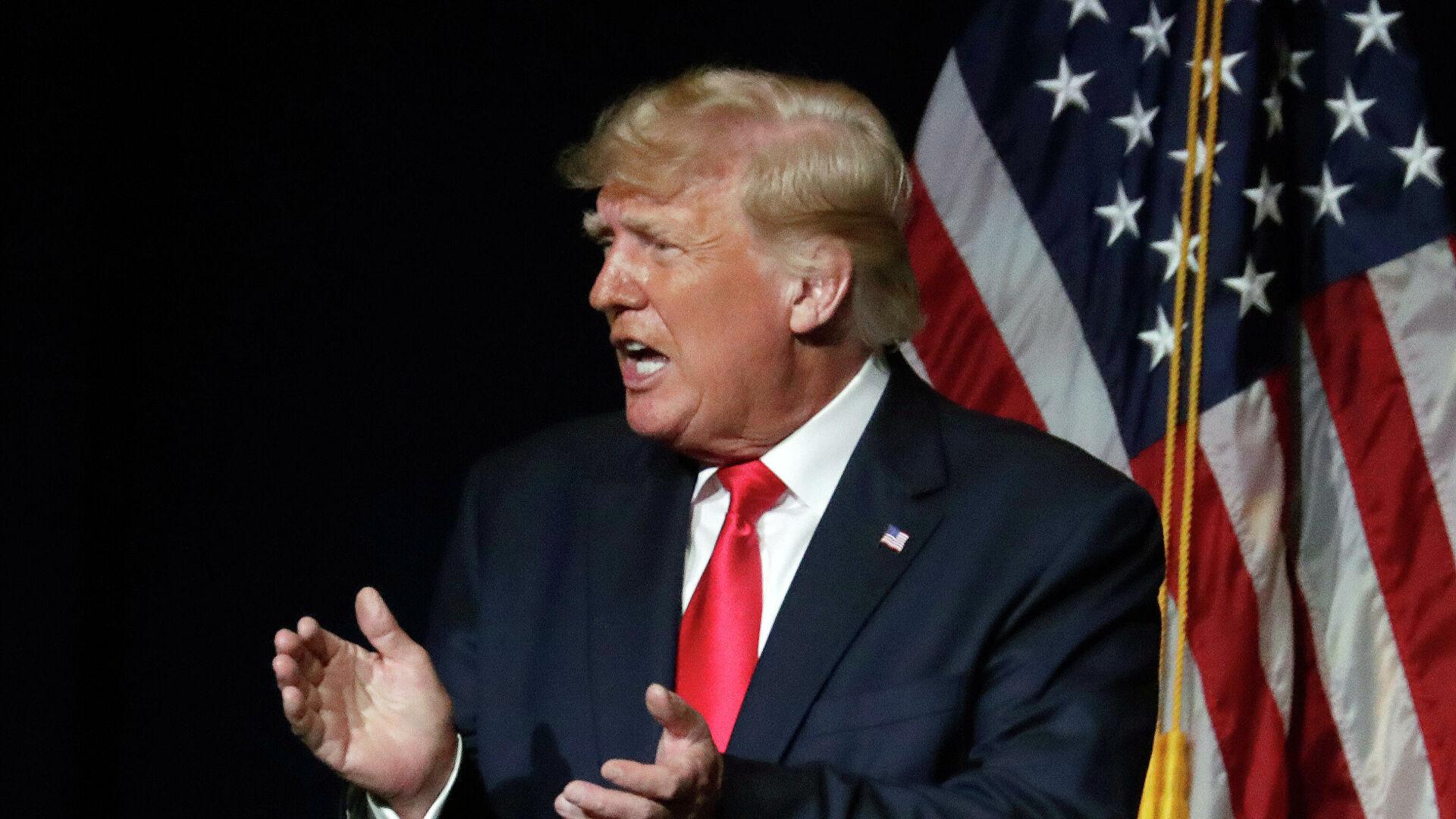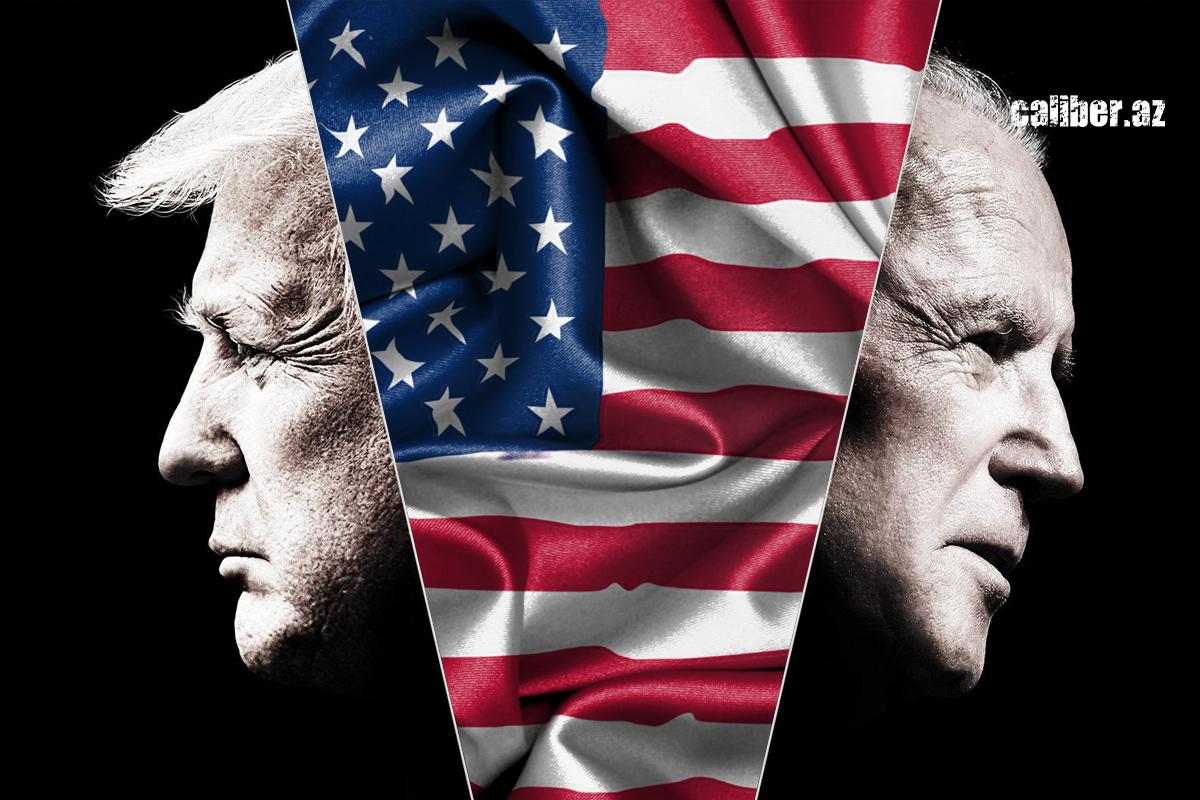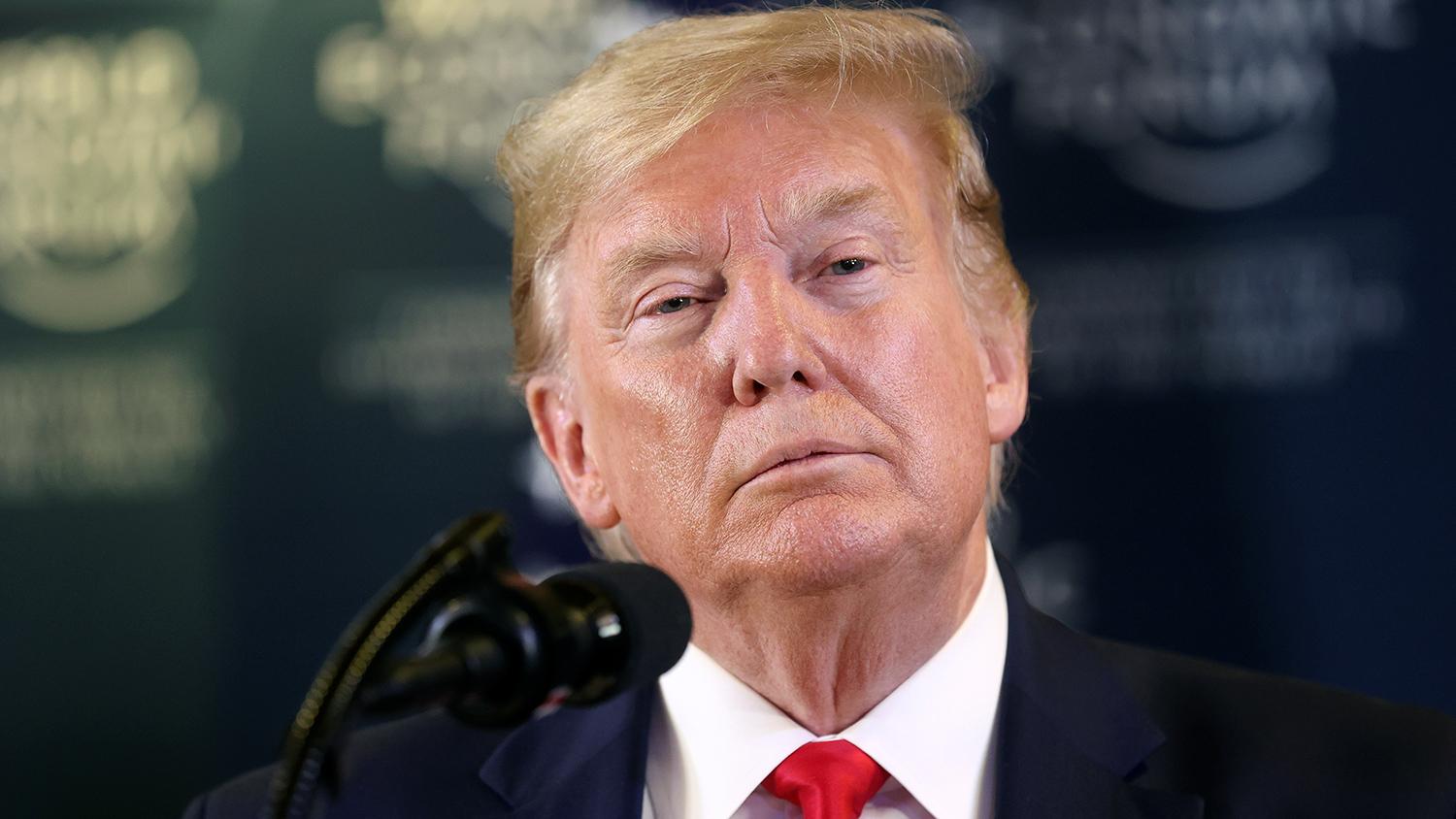A deep dive into potential policies, their impact on US future
Trump 2.0
ANALYTICS 25 May 2024 - 17:00
| Mikhail Shereshevskiy Caliber.Az |
It's time to discuss what Trump will do if he comes to power. Although it is still not a fact that he will win, the probability of this event is high. What will the country become like during a possible Trump presidency? They say that he is unpredictable, but this is not entirely true, he has more or less clear markers. The main one is protectionism, the revival of American industry. His motto "Make America Great Again" is partly related to this. What is meant is not so much an American empire controlling the continents, but the strong economic and industrial growth of the 1950s. At that time, US industry had not yet been transferred to China and Mexico, and its volume was roughly equal to all European industry combined.
During and immediately after World War II, there was a merger of business, government bureaucracy, and the military. Since that era, the state has supported large corporations, especially those that produced military products, with government contracts, but they had the capacity to convert them to civilian production (which was not the case in the American-competing Soviet Union, where conversion processes were impossible due to the requirement to maintain state secrets).
During that era, automobiles and other home appliances became affordable for a large portion of Americans, including skilled laborers. The legend of the golden 50s still has an impact on the US today, which can be found even in the works of a staunch supporter of Democrats and Liberals like Stephen King. It is this "greatness of the USA" that Trump is talking about. He intends to increase government spending for military purposes. His idea has the support of the Military Industrial Complex (MIC), one of the most influential lobbying structures in the country.

So, the main side of Trump's future policy is protectionism. Total imports into the US amounted to $3.16 trillion in 2023. Trump thinks it is possible to increase tariffs by 10 per cent on all goods imported into America, and tariffs on goods imported from China could be as high as 60 per cent! This should facilitate the relocation to the US of much of the manufacturing that has been moved out of the country in the past to exploit the cheap labor of Chinese and Mexican workers. The US has the potential for economic growth under protectionism, and Trump's goal is to make it a great industrial power again.
This has to do not only with foreign policy - confrontation with the PRC - but also with the intention to achieve its own security - the pandemic has shown that Americans are critically dependent on supplies of many kinds of products from the US, including various devices, medical masks, medicines, etc. But Trump also wants to win the support of his nuclear constituency - the white working class, the American heartland and the so-called "Rust Belt" - regions of the US that have suffered from deindustrialization.
In America, the rise of the labor movement (Donald Trump is its undoubted enemy) occurs from time to time during periods of growth, when workers go on strike, seeing their increasing economic importance. So the question of whether a revival of American industry is possible and whether the reindustrialization of the US will lead to a growing labor movement remains open. However, there has not been a strong working class movement in the United States since the radical IWW (Industrial Workers of the World, IRM; this movement attempted to bring about a workers' revolution in America in the early 20th century by taking over factories from self-organized labor collectives). Unlike the ideological radicals of the past, the proponents of the multinational labor movement, direct action, and the "revolutionary industrialism" of the IWW, today's American workers are often (though not always) controlled by conventional labor unions during strikes. These structures have purely economic goals, are run by union officials and lawyers interested in maintaining their privileged position, and dampen any radical sentiment. So no social class revolutions are threatening American business in the foreseeable future.
Another important component of future (if Trump wins) policies is tax cuts and deregulation. Increased government regulation ("state capitalism") in terms of tariffs and defence is combined with "Reaganomics" - the exemption of business from a large part of taxes and from the control of regulatory authorities. This is the reason why the stock market is meeting the rising probability of Trump's victory with a rise in stock prices. Although the business community is also divided, it seems that the bullish market sentiment is related to Trump and the bet on his victory. Yes, businesses want him to win. Just as importantly, Trump is a lobbyist for traditional hydrocarbon energy, oil and gas companies, while his Democratic opponents favor additional regulation and taxation of this sector and subsidies for alternative green energy.
There is a fight going on between different factions of the energy business, and it is closely tied to the issue of climate change. The business groups with which the Democrats are affiliated are promoting climate change as "man-made" and demanding limits on the production of hydrocarbons, the factor they believe is causing global warming. Hence the demands to limit hydrocarbon production and subsidize nuclear power, and to develop wind and solar power plants. In other words, these groups want, in fact, to destroy competitors by the hands of the state. Supporters of conventional hydrocarbon energy, on the contrary, believe that everything is wrong and that climate change is not related to their work.
This means that Trump will reduce restrictions on oil and gas companies. Most likely, his decisions will lead to a slight decrease in oil and gas prices on global markets. But at the same time, increased hydrocarbon production could help strengthen and boost the US and global markets (another reason why business has a vested interest in Trump's success). In a sense, the Democrats are the party of green corporations and the Republicans are the party of hydrocarbon corporations.
Linked to protectionism is a whole set of ideas about what is desirable for the United States and what is not. The Republican Party relies primarily on white people, a significant portion of the most affluent population, as well as white workers, inner cities, suburbs, small towns, and men. Democrats have more support among metropolitan areas, working class people of color, the middle class, minorities, and women.
America's population is increasingly concentrated in metropolitan areas, some nations have high birth rates, and constant migration to the US from around the world (legal and illegal) is picking up steam. The bottom line is that time is working for the Democratic Party. And if the Republicans don't realign themselves, they don't stand a chance in the future. For now, however, they do have such chances and the Republicans intend to capitalize on them.

In principle, if the Democratic Party had nominated another candidate instead of the 82-year-old Biden, such as Michelle Obama (wife of former President Barack Obama, whose reign is now considered by many to be a good time for America), or a more or less successful Democratic governor of some state, Trump would not have had a chance. But the Democratic Party favored Biden, thereby increasing the likelihood of victory for his opponent, who is now ahead of Biden in the polls. And hence the important domestic policy decisions that could come from Trump and his new administration.
Firstly, he wants to sharply restrict the flow of migrants to America. This is a typical anti-migrant policy characteristic of the European far right. Secondly, Trump is likely to continue to strike at so-called affirmative action, which privileges certain minorities. As discussed above, Democrats rely heavily on minorities. For example, their constituency is African Americans, who make up about 13 per cent of the US population; 80-90 per cent of black voters vote for the Democratic Party in elections.
Democrats and their sympathizers pay for special privileges for blacks. However, such policies discriminate not only against white Americans, but also against a number of minorities, especially Chinese and other East Asians, Indians, Jews, Turks, Iranians, Arabs, and others. Recently, the US Supreme Court, dominated by conservative pro-Republican justices, ruled to ban affirmative action in American universities. Trump will continue this offensive. Back in 2020, during Trump's previous term, the US Department of Justice (DOJ) sued Yale University, accusing it of racial discrimination.
The DOJ found that the university's preferential treatment of African-American and Hispanic applicants discriminated against many other racial and ethnic groups, primarily Asian and white applicants. The DOJ found that Asians and whites were four to eight times less likely to be admitted to Yale than blacks with similar academic credentials.
The US Democratic Party, like liberal and left-wing parties in Europe (within the Democrats there are both centrist liberals and a left-wing "progressive" wing), tries to build complex clientelistic ties by promoting minorities loyal to them. This also applies to so-called "gender studies." Such policies allow the party and its associated think tanks and businesses to reinforce their agenda and secure the support of the electorate belonging to certain ethnic and gender groups.
In turn, conservative parties, including Republicans in the United States, want to destroy these clientelistic ties and, on the contrary, build their own ties by appealing to more conservative traditionalist communities and to opponents of migrants. This leads to the so-called culture wars.

The culture wars are dangerous in the sense that they can provoke conflict and confrontation across the US, as has already happened in Trump's previous term. Groups associated with leftist antifa, the Black Lives Matter (BLM) movement and black nationalists have clashed with traditionalist conservatives, religious Protestants, white supremacists and American nationalists who are Trump supporters.
These clashes have sometimes resulted in fatalities, while at other times have been grotesque. For example, in 2017, a march of far-right, i.e. white conservative activists in Charlottesville, Virginia, turned into violent clashes with their opponents, resulting in dozens of injuries, and one woman in a crowd of leftists was killed when a car plowed into the crowd at high speed. On the other hand, there was a case when antifa groups attacked women who objected to a transgender person visiting a women's bathhouse.
Much of this is about ethnic conflicts - each party wants to win the support of certain groups of voters, such as blacks or whites. But things look a bit more complicated, as nationalism or ethnic preferences turn out to be covered by various ideological constructs.
This includes various gender theories, the fashionable debate in the United States about who should or should not be considered women, clashes between feminists and transgender people, between pro- and anti-feminist movements, and so on. Ultimately, the purpose of the culture wars is to mobilize certain electoral groups to vote for one party or another.
Charlottesville-like scandals and crises are very likely during Trump's new term, if he does win the election. But it is worth remembering that, by splintering the social grassroots, culture wars ultimately strengthen the forces that govern the country. After all, by and large, it is not the voters who drop a piece of paper in the ballot box every four years, but the big corporate lobbyists who openly invest in lawmakers and their election campaigns, as well as powerful agencies that run America.
The top Republicans and top Democrats are just committees of lobbyists associated with these forces. So while the culture wars could theoretically escalate into a full-scale civil war, they still strengthen the American system rather than undermine it. At least for now.
One last thing. Trump believes that his past term was accompanied by sabotage by numerous officials who didn't like his policies. Therefore, he first of all wants to solve personnel issues. To this end, Trump and his entourage intend to carefully select future officials. This means a grand purge in various agencies, especially in the State Department.
However, it should be kept in mind that Trump does not trust officials and diplomats at all. He believes that America should be run by businessmen and the military.
His opponents point out that he lacks the knowledge to rule a country as large and complex as the United States, but at the same time is extremely ambitious. This combination, according to critics, will make his rule incompetent, chaotic, cause a series of resignations, scandalous incidents and violent conflicts, as happened last time, and that in the end the political turbulence will turn into a deep crisis, like the Trumpist revolt on January 6, 2021, when they refused to accept Trump's electoral defeat.
Republican John Bolton, former national security advisor believes the man's rule is bringing chaos to American politics, ultimately weakening the United States.
We will refrain from any conclusions here, leaving the question open.
The views and opinions expressed by guest columnists in their op-eds may differ from and do not necessarily reflect the views of the editorial staff.
Caliber.Az
|
1
|
Phantom arms deal: How false claims aim to derail Baku-Tehran diplomacy Azerbaijan embraces "forewarned is forearmed" principle
25 July 2024 - 15:34
|
|
2
|
Could France’s anti-NATO rhetoric trigger domestic turmoil? Leftist Mélenchon's stance sparks historical echoes
24 July 2024 - 10:24
|
|
3
|
Azerbaijan: The new powerhouse of aluminium production amid global market strain "Green" era's requirement
25 July 2024 - 17:05
|
|
4
|
Brussels' bait and Yerevan's rush to swallow it The visa-free temptation
24 July 2024 - 09:00
|
|
5
|
West-backed Armenia likely to spark conflict with Azerbaijan rather than seek peace Caliber.Az reveals expert prognoses
25 July 2024 - 11:10
|
Japan addressing increasing incidents of customer harassment
Service culture under strain27 July 2024 - 03:05
Swiss spots struggle with social media-driven visitor impact
Tourism vs. nature27 July 2024 - 01:03
German chancellor tackles EU expansion, internal reform challenges
Path forward26 July 2024 - 23:03
Italian newspaper explores Azerbaijan's ancient Albanian churches
26 July 2024 - 21:08
Azerbaijani prosecutor general declares ties with Türkiye as strategic partnership
PHOTO26 July 2024 - 20:55
Azerbaijan, Italy strengthening military relations
PHOTO26 July 2024 - 20:42
China demands withdrawal of US nuclear weapons from Europe
26 July 2024 - 20:29
Pentagon concedes to spreading anti-Sinovac propaganda in Philippines
26 July 2024 - 20:16
COP29 presidency team hosts events to tackle key climate agenda issues
26 July 2024 - 20:03
Israel targets Türkiye’s TRT Haber team covering Al-Aqsa mosque incident
26 July 2024 - 19:51
COP20 president: Azerbaijan should lead with ambition at COP29
26 July 2024 - 19:38
Turkish defence minister, Azerbaijani ambassador discuss strengthening military ties
26 July 2024 - 19:25
FBI seeking to interview Trump as part of assassination attempt investigation
26 July 2024 - 19:12
US presidential candidate cites potential path to victory with Biden out of race
26 July 2024 - 18:58
Turkish MP confirms plans for official Azerbaijani school in Istanbul
26 July 2024 - 18:44
US vice president’s call for peace in Gaza sparks controversy with Israel
26 July 2024 - 18:30
FM: Italy to appoint ambassador to Syria after 10 years
26 July 2024 - 18:17
Head of Georgian Parliament blames opposition for compromising national safety
Aid to Ukraine at Georgia’s expense26 July 2024 - 18:03
South Caucasus on edge: West fuels Armenia's war drums
Yerevan clings to deceitful rhetoric26 July 2024 - 18:02
Media: Iran arms Hezbollah with advanced weapons
26 July 2024 - 17:49
Bolsonaro intends to run for Brazilian presidency in 2026, citing confidence in winning
26 July 2024 - 17:36
Armenian PM visits modernised Margara checkpoint on Turkish border
VIDEO26 July 2024 - 17:22
Boeing considers to convert its top fighter into an electronic warfare jet
Caliber.Az on YouTube26 July 2024 - 17:17
Belarus ready to expand cooperation with North Korea
26 July 2024 - 17:09
EU appoints new special representative for South Caucasus
26 July 2024 - 17:01
Azerbaijani-Chinese partnership defies "first among equals" attitudes
Rising above geopolitical cynicism26 July 2024 - 16:55
Armenia's militarization: A "peace agenda" with an armed approach
Yerevan must revisit recent historical lessons26 July 2024 - 16:42
Azerbaijan approves cooperation pacts with Türkiye, Kazakhstan
26 July 2024 - 16:33
Media: US informs Iran of readiness to return to nuclear deal
26 July 2024 - 16:29
Turkish forces take down PKK terrorists in coordinated Iraq and Syria raids
VIDEO26 July 2024 - 16:16
Israeli air strikes hit Hezbollah outposts in response to rocket fire
26 July 2024 - 16:03
Kremlin spox: EU ridicules Orban over Moscow visit
26 July 2024 - 15:51
Armenian parliamentary delegation visits Georgia to strengthen bilateral ties
26 July 2024 - 15:38
Washington talks peace while arming Yerevan
26 July 2024 - 15:38
Travellers from 13 nations explore rebuilding of Karabakh, East Zangazur
PHOTO26 July 2024 - 15:25
European Commission transfers €1.5 billion from frozen Russian assets to aid Ukraine's defence
26 July 2024 - 15:25
Trump says US to destroy Iran in case of his assassination
26 July 2024 - 15:12
Kremlin declares dialogue with West futile amid hostility toward Russia
26 July 2024 - 14:59
Somalia, Azerbaijan share common positions on many international forums
Minister’s statement26 July 2024 - 14:46
Azerbaijan promoting tourism potential in India
PHOTO26 July 2024 - 14:33
